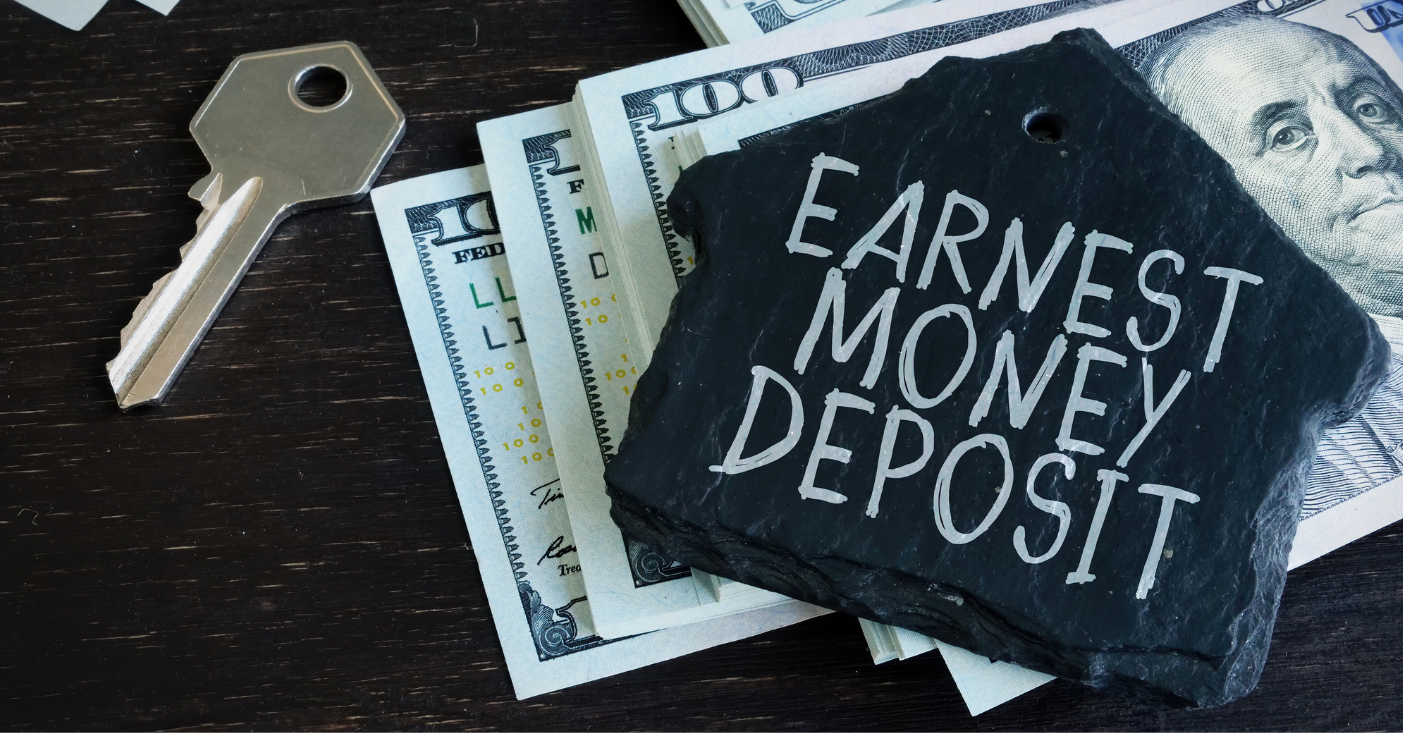Earnest Money Deposits in Real Estate Investing: Do You Really Have To?

Real estate investment can be a complex and multi-faceted venture. From navigating property market fluctuations to understanding legal jargon, the learning curve is steep but the rewards can be substantial. Among the many terms you may encounter, “earnest money deposit” stands out as a crucial concept. It’s a question that often perplexes real estate investors and wholesalers—do you legally have to put down an earnest money deposit on an investment property? This comprehensive guide unpacks what earnest money is, why it’s important, and whether you can legally bypass it in a real estate deal.
Understanding Earnest Money Deposit
Before we can tackle the legality of earnest money deposits, it’s essential to understand what they are and why they exist. An earnest money deposit (EMD) is a payment made by the buyer into an escrow account to demonstrate their intention of completing the real estate transaction. It’s a commitment to the purchase, showing the seller that you’re serious about buying the property.
Typically, an EMD is a small percentage of the property’s purchase price, which can range from 1% to 5%. The exact amount is generally determined based on the local real estate customs, the price of the property, and negotiations between the buyer and seller.
Reasons for an EMD
The primary purpose of an EMD is to protect the seller in case the buyer backs out of the deal for a reason not stipulated in the contract. If this happens, the seller may be entitled to keep the earnest money as compensation for the lost time and opportunity to sell the property to someone else.
In a competitive market, earnest money also shows the seller that your offer is significant. If several potential buyers are vying for the same property, a larger EMD can strengthen your offer and set it apart from others that have smaller or no deposits.
EMD vs. Down Payment
Although similar in concept, an EMD and a down payment are made at different stages of the real estate transaction. The EMD is submitted with the offer and held in an escrow account until the closing, while a down payment is paid at the closing along with the rest of the funds required by the lender to secure financing.
Legal Considerations for EMDs
The legality of requiring an EMD in a real estate deal is not a universally black or white matter. The need for an earnest money deposit depends on several factors, including state laws, local customs, and the specifics of the purchase contract negotiated between the buyer and seller.
State Laws and Real Estate Customs
Most states don’t explicitly require an EMD deposit in residential sales. However, it is a standard industry practice in most regions and is often seen as a sign of good faith. That said, the requirement for an EMD is usually subject to state real estate laws, which vary significantly across the US.
States like California, for instance, don’t require an EMD to make a contract valid or enforceable. However, if the buyer fails to adhere to the terms of the sale, the seller may have grounds to retain the buyer’s deposit as compensation for the breach.
Purchase Contract Stipulations
The purchase contract is a legally binding agreement that outlines the terms and conditions of the sale, including the EMD requirement. It’s crucial to ensure that the EMD clause is clearly defined to protect both the buyer and seller’s interests.
Savvy real estate investors work with their brokers and lawyers to craft a purchase contract that caters to their specific needs. This can involve negotiating the amount of the deposit, the conditions under which it’s refundable, and the timeframe within which it must be submitted after the contract is ratified.
Ways to Avoid an EMD Legally
While earnest money is customary, it is possible to structure a real estate transaction legally without putting down an EMD. Here are a few options to explore if you’re looking to minimize the upfront cash requirements in your real estate investment.
Seller Financing
In a seller-financed deal, the seller acts as the lender, allowing the buyer to make periodic payments over time. In such cases, the seller may be willing to forego an EMD in exchange for a higher interest rate or other favorable terms.
Contingency Clauses
Including contingencies in your purchase agreement can allow you to exit the deal without forfeiting your earnest money if certain conditions are not met. Common contingencies include successful property inspections, securing financing, or the sale of your existing property.
All-Cash Offers
If you have the means to make an all-cash offer, sellers may be more inclined to accept your bid without an EMD, especially if it means a quicker and more straightforward sale without the need for lender approval.
Negotiate for No EMD
Your negotiation skills may be your best tool to legally avoid an EMD. If the seller is motivated enough, they may be willing to accept an offer without an earnest money deposit, especially if your offer is competitive in other aspects.
When an EMD Can Work in Your Favor
Despite the potential flexibility and negotiation opportunities, earnest money deposits can work in your favor as a real estate investor. Understanding when to use them can be just as beneficial as knowing when to avoid them.
Competitive Advantage
In a seller’s market, a substantial EMD can make your offer more attractive and potentially help you win bidding wars. It shows that you have the financial means and the commitment to go through with the purchase.
Rent-Right-to-Own
In a rent-to-own or lease option agreement, an EMD is often required, as it acts as a portion of the down payment. This demonstrates the tenant’s intent to purchase the property at a later date.
Safeguarding Your Interests
An EMD can also signal to the seller that you’re serious about the purchase and that you’re willing to cooperate in good faith. This can lead to more concessions and a smoother negotiation process.
Best Practices with EMDs
When it comes to dealing with earnest money deposits, there are best practices that every real estate investor should follow to protect their investment and keep the transaction above board.
Use a Neutral Escrow Company
Ensure that the EMD is held by a third-party escrow agent to guarantee that neither the buyer nor the seller can access the funds until the sale is completed or terms of the contract are fulfilled.
Obtain Receipts and Documentation
Always keep a paper trail of your EMD transactions. This includes copies of checks, wire transfer receipts, and any correspondence with the escrow company or seller regarding the earnest money.
Understand Releasing of Funds
Be clear on the circumstances under which the EMD can be released or forfeited. This should be clearly outlined in your purchase contract, covering contingencies and breach of contract scenarios to avoid any ambiguity.
Seek Legal Counsel
Real estate laws can be complex and vary from state to state. Consult with a real estate attorney to ensure that your EMD practices are in compliance with local regulations and to safeguard your interests in any real estate transaction.
Conclusion
Earnest money deposits are a customary aspect of many real estate transactions, offering a financial commitment for buyers and a safeguard for sellers. While not necessarily a legal requirement, they are a common practice supported by the laws and customs governing real estate deals.
Understanding the role of earnest money in real estate, as well as your rights and obligations, is paramount. By doing so, you empower yourself to make informed decisions, negotiate favorable terms, and protect your investments in the unpredictable and ever-shifting realm of real estate. Remember that each deal and market is unique, and a customized approach, with or without an EMD, can tip the scales in your favor.
Found this blog interesting? View more at https://flippery.com/blogs/





